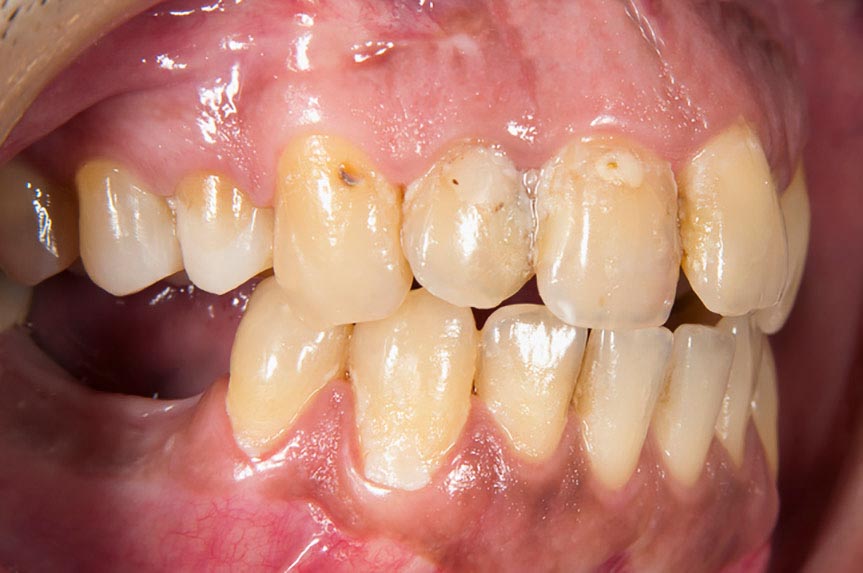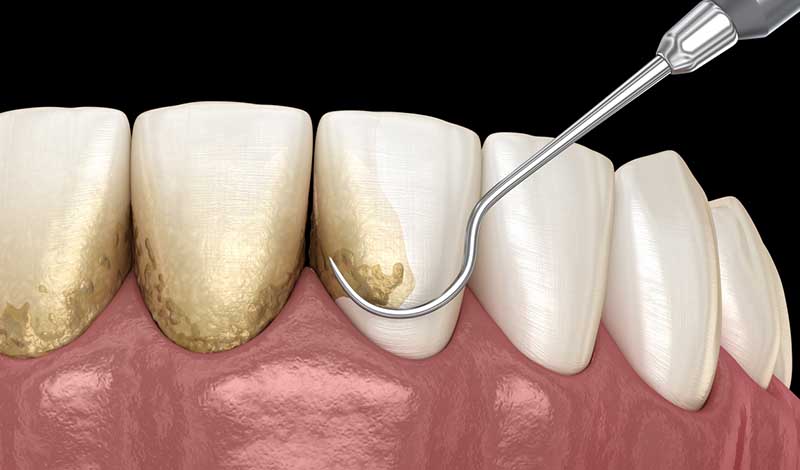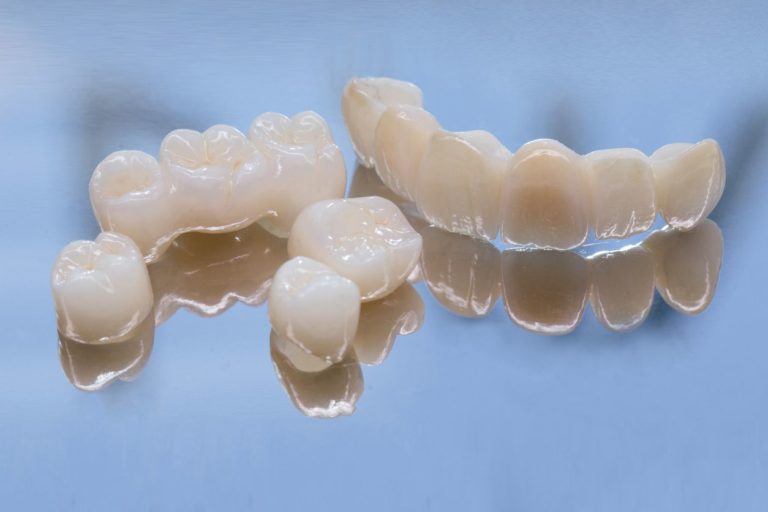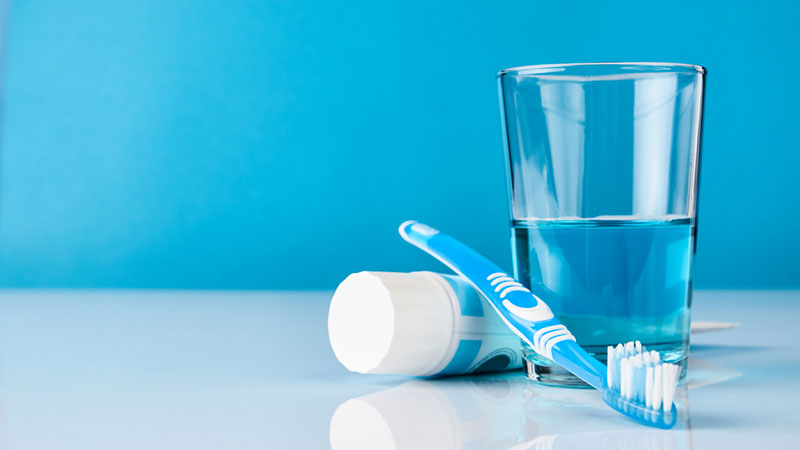Bad breath, also known as halitosis, is a common problem that affects millions of people. Unfortunately, having bad breath can be a sign of dental issues and can even affect your self-esteem. While you can chew mints and gum to help with bad breath, many underlying causes need to be addressed to actually get rid of the problem altogether. Here’s how visiting your dentist can help in preventing and getting rid of bad breath so that you can feel confident in your smile.
1. Treat and Prevent Gum Disease
Periodontal disease, more commonly referred to as gum disease, is an infection of the gum tissue. The first stage of gum disease is gingivitis, which is completely treatable and reversible. If gingivitis is ignored and allowed to get worse, the infection causes small pockets to form around the teeth. These small pockets act as craters for bacteria, food particles and odors to reside, and it is almost impossible to clean in these areas without professional care. This can result in chronic bad breath that is difficult to treat on your own.
The benefit of visiting your dentist is that they won’t just help in diagnosing gum disease, but they can treat it and help to prevent it from coming back.
2. Remove Calculus and Tartar Buildup
Dentists that specialize in bad breath are often asked:
- Does plaque buildup cause bad breath?
- Can tartar cause bad breath?
- Can a professional teeth cleaning help with my bad breath?
The answer to all these questions is YES. If it’s been a while since your last routine dental cleaning and you struggle with bad breath, it’s time to make an appointment. Professional teeth cleanings work by removing hardened plaque and calculus from your teeth. Even with the best dental techniques and tools, plaque can harden on different surfaces of the teeth and is impossible to remove without the help of a hygienist. This hardened plaque and calculus not only causes bad breath, but can also create problems with gingivitis and tooth decay.
3. Replace Old Restorations or Appliances
In some cases, the cause of bad breath involves older restorations or appliances. An older bridge or dental crown can begin to loosen, causing bacteria and odors to reside underneath the restoration. Old dentures or partials may begin to have odors that are impossible to remove with just soaking and cleaning alone. Most dental restorations are not meant to last a lifetime, so having them replaced regularly can benefit your oral health. Your dentist can check for loose restorations and replace older appliances.
4. Improve Poor Oral Hygiene Habits
Poor oral hygiene habits can easily affect how your breath smells. In fact, one of the most common causes of bad breath is lack of flossing. Bacteria and food particles can get stuck between teeth, causing severe bad breath and even tooth decay. Your dentist can help with this particular problem by offering advice on how to better care for your teeth. With a simple oral examination, your dentist can determine if your teeth are as clean as they should be and what measures you can take to improve your routine at home.
If you’re wondering how to get rid of bad breath with braces, good oral hygiene plays a major role in this. It can be a little more challenging to keep your mouth clean when you have braces because food and bacteria have more places to hide. Your dentist can provide product recommendations like special toothbrushes, flossing devices, kinds of toothpaste and mouthwashes to help clear away bacteria and freshen your breath when you have braces.
RELATED: 5 Tips on Caring for Metal Braces
5. Treatments for Tooth Decay
Tooth decay may be the culprit for bad breath in many cases. However, it can be remedied with a simple oral exam and treatment. The goal is to remove the decay from the tooth and replace it with a dental filling. In some cases, a root canal is necessary if the decay has been allowed to reach the inner pulp, or nerve, of the tooth.
Teeth that have broken off and have become severely decayed may need to be extracted. Your dentist can examine your teeth and create a treatment plan specific to your needs. By taking care of broken, decayed teeth, it can have a significant impact on improving your breath.
6. Screen for Oral Cancer
While less common, oral cancer can cause persistent bad breath and bad breath in throat areas behind the mouth. There are many other marked signs of oral cancer, like lesions and lumps within the mouth as well as constant oral pain and tongue numbness. However, a dental exam can help your dentist check for signs of oral cancer. If clinical symptoms are detected, you can receive treatment early to help prevent cancer from progressing.
It’s important to note that most cases of bad breath are not oral cancer-related and are typically caused by another problem like gum disease, poor oral hygiene habits or tooth decay.
Other Ways to Stop Bad Breath
Aside from visiting your dentist regularly, there are other ways to help stop bad breath. Our dental professionals recommend trying these tips in addition to practicing good oral hygiene and treatments from your dentist:
- Avoid sugary food and drinks. Bacteria in the mouth feed on sugar. When you consume food and beverages that have high sugar content, bacteria grow and release sulfuric compounds that cause bad breath.
- Drink more water. Bad breath-causing bacteria thrive in a dry environment. Our saliva keeps our mouths at an ideal pH level that makes it hard for bacteria to grow. Drinking more water will keep you hydrated and encourage the flow of saliva.
- Quit smoking or vaping. Smoking, vaping and using tobacco products can cause bad breath by drying out the mouth and creating an acidic environment for bacteria. If you need another reason to quit smoking, add bad breath to that long list.
- Keep sugarless gum or mints on hand. Again, a healthy flow of saliva helps fight the bacteria that cause bad breath. Chewing on sugarless gum or mints when your mouth is dry will help to fight dry mouth and bad breath.
If you’re dealing with persistent bad breath and nothing seems to be working, make an appointment with one of our experienced dentists. It could be a sign that something is not right. Contact our team today to learn more about our services and how we can help stop bad breath.
Benefits of Seeing a Dentist Regularly
Your dentist is responsible for providing quality dental care in a calm, inviting environment. It is crucial that you keep your bi-annual appointments to keep up with your dental health. Your bi-annual appointment will involve a professional dental cleaning to remove hardened plaque and calculus as well as an examination. The examination will check for a variety of different issues, which include:
- Tooth decay
- Loose or old restorations
- Oral cancer screening
- Product advice and recommendations
- Hygiene technique advice
- Periodontal disease screening
Even after solving the cause of your bad breath, it is important to continually visit your dentist twice a year to prevent it from coming back. Your routine dental appointments are your best defense against bad breath and other more serious oral health problems. Your appointments can be pre-scheduled for you, making it easy to remember when you need to go in for a checkup. Your dentist can help in providing care when needed as well as help in giving you recommendations on products and techniques that are essential for keeping your breath fresh.






